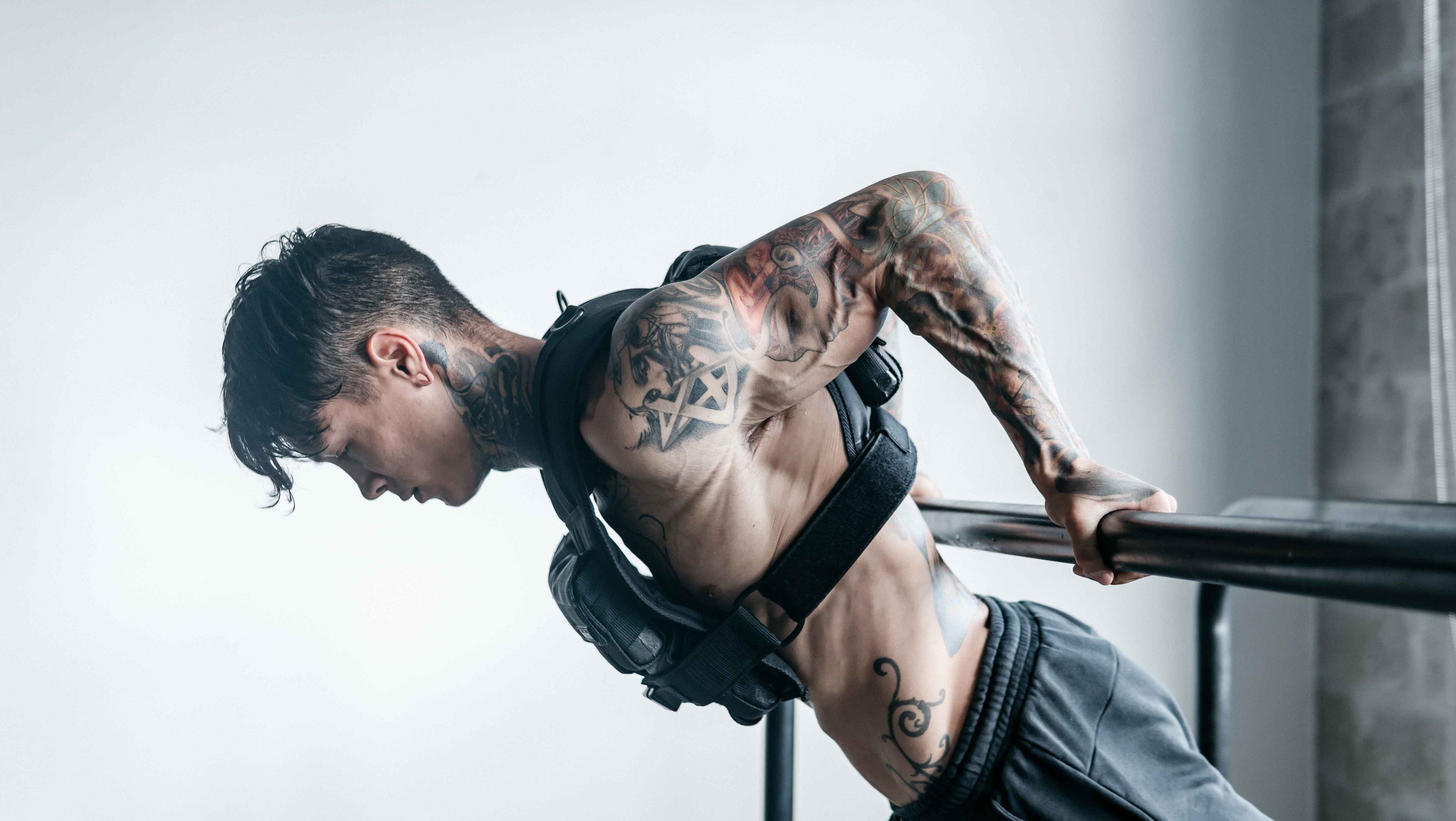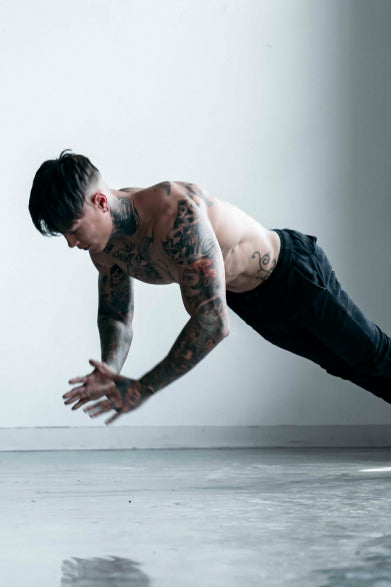Calisthenics Training at Home: A Beginner’s Guide
Calisthenics is a form of exercise that uses your
body weight for strength, flexibility, and endurance training.
It’s an excellent workout method because it
requires minimal equipment and can be done anywhere, including at home. If
you’re looking to stay fit, build muscle, and improve overall health,
calisthenics training at home could be your perfect solution.
This blog will cover the benefits of calisthenics, effective at-home calisthenics workout routines, and tips for beginners.
What is Calisthenics?
Calisthenics is a form of strength training that
focuses on using your body weight for resistance. Exercises like push-ups,
squats, pull-ups, and planks are examples of calisthenics movements. These workouts
are simple yet highly effective, making them suitable for all fitness levels.
The best part? You don’t need a gym membership or fancy equipment to get started. All you need is a little space and a willingness to learn.
Benefits of Calisthenics Training at Home
1. No
Equipment Needed
Calisthenics training at home eliminates the need
for expensive gym equipment. Your body acts as the resistance, and common
household items like chairs or walls can help modify exercises.
2. Build
Strength and Muscle
Can you build muscle with calisthenics at home?
Absolutely! Exercises like push-ups, dips, and squats target major muscle
groups, helping you gain strength and muscle definition over time.
3. Improve
Flexibility and Balance
Calisthenics focuses on full-body movements, which
enhance flexibility, coordination, and balance. This improves your overall
functional fitness.
4. Suitable
for All Ages
One of the most common questions is, "Can a
14-year-old start calisthenics?" Yes! Calisthenics is safe for teenagers
and even older adults as it relies on natural body movements.
5.
Convenient and Time-Efficient
An at-home calisthenics workout saves you the time and effort of commuting to the gym. You can do it on your schedule, making it easy to stay consistent.
At-Home Calisthenics Workout for Beginners
Starting with a simple routine is the best way to
build your strength and confidence. Here’s an example of an at-home
calisthenics workout for beginners:
1. Warm-Up
(5-10 minutes)
Begin with light cardio to get your blood flowing.
This could include:
- Jumping jacks (2 minutes)
- High knees (2 minutes)
- Arm circles (1 minute)
2. Push-Ups
(3 sets of 8-12 reps)
- Targets: Chest, shoulders, and triceps.
- Instructions: Keep your hands shoulder-width apart and your body in
a straight line. Lower your chest to the floor and push back up.
3.
Bodyweight Squats (3 sets of 10-15 reps)
- Targets: Quads, hamstrings, and glutes.
- Instructions: Stand with feet shoulder-width apart. Lower your hips
as if sitting in a chair, then stand back up.
4. Plank (3
sets of 20-30 seconds)
- Targets: Core muscles.
- Instructions: Keep your body in a straight line from head to toe,
supported by your forearms and toes.
5. Lunges (3
sets of 10 reps per leg)
- Targets: Legs and glutes.
- Instructions: Step one leg forward and lower your body until both
knees form 90-degree angles. Return to the starting position and switch
legs.
6. Leg
Raises (3 sets of 10 reps)
- Targets: Lower abs.
- Instructions: Lie on your back and lift your legs until they’re
perpendicular to the floor, then lower them slowly without touching the
ground.
7. Cool Down
(5 minutes)
Finish your workout with stretches for your legs, arms, and back to prevent soreness and improve flexibility.
Calisthenics Workout at Home: Advanced Routine
Once you’re comfortable with the basics, challenge
yourself with these advanced exercises:
1. Pull-Ups
(3 sets of 5-10 reps)
- You’ll need a sturdy pull-up bar for this.
- Pull your body up until your chin is above the bar, then lower
slowly.
2. Dips (3
sets of 10 reps)
- Use a sturdy chair or parallel bars.
- Lower your body by bending your elbows and pushing back up.
3. Pistol
Squats (3 sets of 5 reps per leg)
- Stand on one leg, extend the other forward, and lower yourself into
a squat.
4. Decline
Push-Ups (3 sets of 10 reps)
- Elevate your feet on a surface like a chair to increase resistance during push-ups.
FAQs About Calisthenics Training at Home
1. Can I
learn calisthenics at home?
Yes, you can! Calisthenics is one of the most
accessible workout methods. With online tutorials and beginner-friendly
exercises, it’s easy to start at home.
2. Do home
calisthenics workouts work?
Absolutely. Home calisthenics workouts are highly
effective for improving strength, flexibility, and endurance. Consistency and
proper form are key to seeing results.
3. Can you
build muscle with calisthenics at home?
Yes! While calisthenics primarily uses body weight,
it can build significant muscle through progressive overload, advanced
exercises, and consistent training.
4. Can a
14-year-old start calisthenics?
Yes, calisthenics is safe for teenagers. It’s a great way to build strength, improve flexibility, and establish a healthy fitness routine early in life.
Tips for Successful Calisthenics Training at Home
- Start Small
- Begin with simple exercises and gradually increase intensity as
your strength improves.
- Focus on Form
- Proper technique is crucial to avoid injuries and maximize
effectiveness.
- Be Consistent
- Stick to a regular workout schedule to see long-term results.
- Track Your Progress
- Keep a journal of your exercises, reps, and sets to monitor
improvements.
- Stay Motivated
- Set achievable goals and celebrate small milestones to stay encouraged.
Conclusion
Calisthenics training at home is a versatile and
effective way to stay fit without needing a gym or equipment. Whether you’re a
beginner or looking to challenge yourself with advanced moves, calisthenics can
help you build strength, flexibility, and endurance.
By following an at-home calisthenics workout routine and staying consistent, you can achieve remarkable fitness results. So, roll out a mat, clear some space, and start your calisthenics journey today!
Discover more at thenx.com.





Comments
Post a Comment